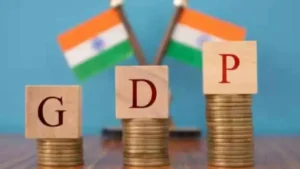In the fiscal year 2023-24, India witnessed a slight contraction in foreign direct investment (FDI) by about 3.5%, attributed to global economic uncertainties. However, amidst this, India continued to attract significant FDI from Singapore, albeit with a dip in numbers, maintaining its position as the highest recipient of FDI from the island nation.
FDI Trends by Country
- Singapore: Despite a 31.55% decline in FDI to $11.77 billion, India remained the top destination for Singaporean investments.
- Mauritius: Emerging as the second-largest investor, Mauritius saw its FDI dip to $7.97 billion from $6.13 billion in the previous fiscal year.
- United States: Positioned as the third-largest investor with $4.99 billion in foreign investments, down from $6 billion in the preceding year.
Factors Driving FDI Flows
- Tax Advantage: Singapore’s prominence is attributed to its competitive tax regime and efficient regulatory setup. The historical double tax avoidance agreement between India and Singapore has provided beneficial provisions, despite recent amendments.
- Policy Changes: Amendments in India-Mauritius tax treaties and regulatory reforms have influenced investment patterns. Singapore has emerged as a preferred jurisdiction due to these changes.
- Global Economic Conditions: Geopolitical tensions and domestic policy developments continue to impact FDI flows, with expectations of improvement in the latter half of 2024-25.
Sectoral Analysis
- Contractions: FDI inflows contracted in sectors like services, computer software and hardware, trading, telecommunication, automobile, pharma, and chemicals.
- Growth Sectors: Conversely, sectors like construction (infrastructure), development, and power witnessed healthy growth in inflows during the period.
Long-term Implications and Importance of FDI
Foreign investments, crucial for India’s infrastructure development and economic growth, contribute significantly to the country’s balance of payments and currency strength. Over the years, countries like Singapore, Mauritius, and the United States have played pivotal roles in India’s FDI landscape, reflecting the complex interplay of global economic dynamics and regulatory frameworks.




 ICRA Projects India’s GDP Growth to Mode...
ICRA Projects India’s GDP Growth to Mode...
 India’s GDP May Hit 8.1% in Q3FY26: SBI ...
India’s GDP May Hit 8.1% in Q3FY26: SBI ...
 Forex Reserves of India Hit Record High ...
Forex Reserves of India Hit Record High ...








